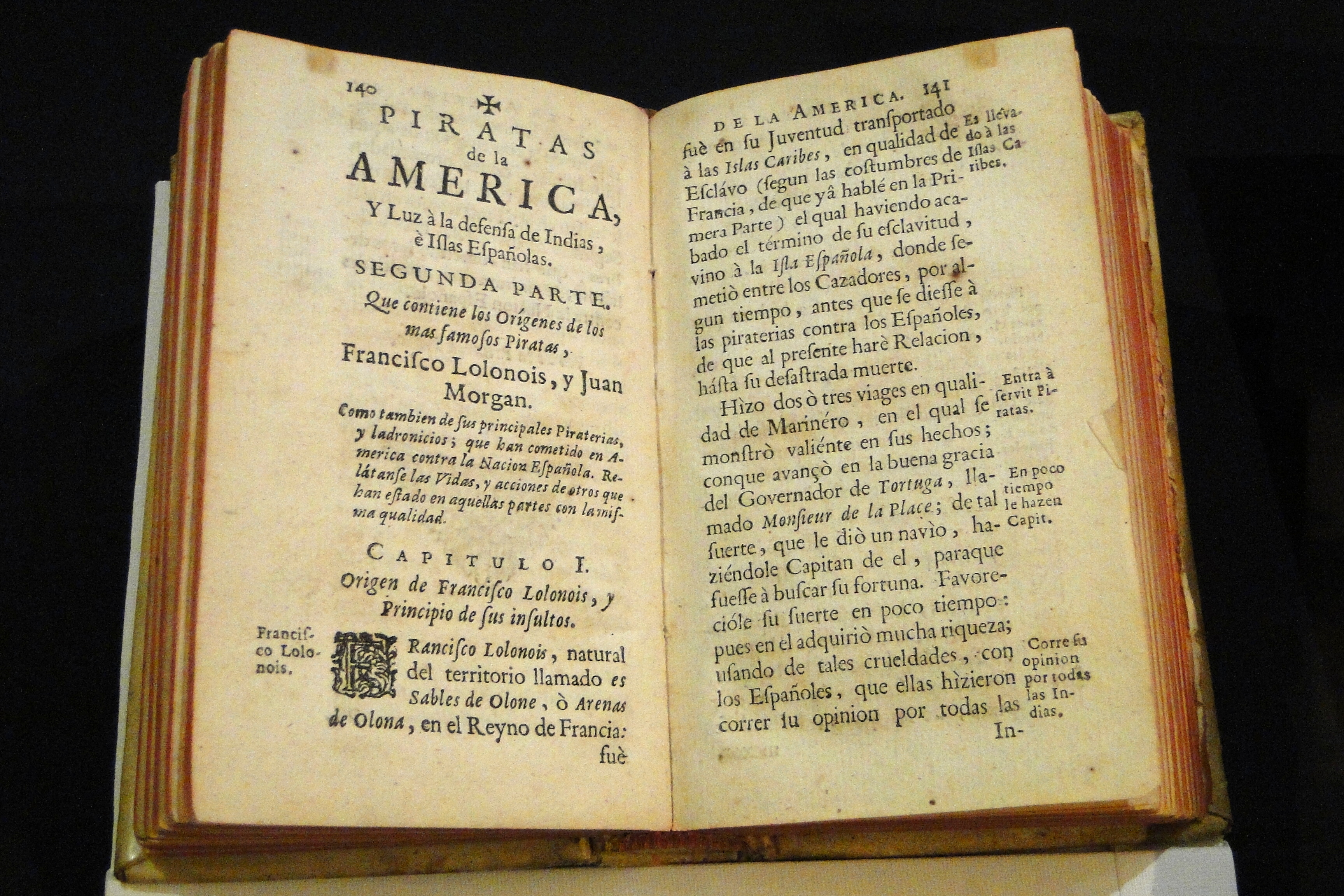It’s September 19 again, which means that it’s international TALK LIKE A PIRATE DAY. If you would like to take part in this facetious, frivolous parody of a spoof, here is invaluable assistance in the form of a Pirate glossary and Pirate translations…

Some of the expressions heard in the Pirate era and still in use are easy to understand – (see my earlier account https://tonythorneglobal.wordpress.com/?s=Pirate+talk ) – but in other cases they may need to be explained:
Above board = visible on deck
The devil to pay = a difficult seam to be sealed, on the ship’s outer hull
Between the devil and the deep blue sea = hanging dangerously on the lower hull
The bitter end = the end of a cable attached to a ‘bitt’ or post
By and large = sailing into the wind and slightly with the wind
A clean slate = used by the lookout to record progress and wiped clean after each watch
Chock-a-block = when rigging blocks are tightened to the maximum
Cross the line = ceremonial crossing of the Equator
Cut and run = slash off surplus equipment to make a quick escape
Distinguishing mark = identifying flag
Feeling groggy = from grog, or diluted rum
Fend off = stop the boat hitting the dockside or another vessel
Footloose = the unfastened bottom of a sail blowing in the wind
Hand over fist = gripping as a sailor climbing a mast
Hard and fast = completely stuck
In the doldrums = a zone of calm seas in the tropics
Copper-bottomed = strong as a sailing ship with a copper-covered hull
Iron-clad = like a steam warship with metal hull
Leeway = the amount a ship is driven in the direction of the prevailing wind
At Loggerheads = fighting with a heavy iron ball on a stick, used for caulking
Overreaching = holding the same course for too long
Over a barrel = positioned for flogging
Overhaul = pull ropes carefully over the sails
Pooped = swamped by a big wave
Slush fund = money from illicitly selling surplus cooking fat ashore
Take soundings = measure sea depth
Taken aback = with the sails filled dangerously with a reverse wind
Tide over = take on provisions until next sailing

On a much more frivolous note…here are some translations of modern terminology into Pirate-talk:
PIRATE TRANSLATIONS
Selfie = a very likeness, made by my own hand
YOLO = every pirate for himself (and devil take the hindmost) – or EPFH (ADTTH)
= risk all for the moment, me hearties
= all aboard – for death or glory! – or FDOG
Hashtag = pennant
= marker buoy
= banner (with a strange device)
= Jolly Roger
= X marks the spot
Trending = on the lips of all and sundry
= borne on the trade winds
= carried on the tide
Viral = spreading abroad like a pestilence
= pestilential
= contagious as the pox
Blog = log
= Captain’s log
= ship’s log
= an account of me dastardly deeds, committed to paper in me own scrawl
Flash mob = confederacy of rogues
= villainous crew
= rampaging ne’er do-wells
Timeline = a full account of me wickedness
= dastardly doings (doggedly detailed)
= chart of the voyage
Check-in = assemble at the gangplank
= muster on the quayside
= scrawl yer mark on this ‘ere manifest!
Status = condition
= estate (eg in fine estate)
= where and what ‘e be
Follow Friday (FF) = recommending to all me shipmates
= nautical nudge – or NN
Throwback Thursday (TT) = dredgin’ up the past
= evil deeds best forgotten
= memories of me misspent youth – or MMMY
Apps = diabolical devices, tricks and subterfuges
Like = stamp with my seal
= bestow my approval
= add my endorsement
= take to my bosom
Share = divide up the loot
= give to each his part of the booty
= pass on to me shipmates
LOL = Yo Ho Ho – or YHH
Retweet = pass on the scuttlebutt
= re-tell the old yarns
Snapchat = vanishing mirage
= fleeting vision of curiosities
= glimpse of fascinations (out of reach)
The Cloud = the firmament
= the great archipelago (where all ships vanish)
Instagram it = make a picture and convey it (to me)
= seal the likeness in a bottle and send it on the next tide
And one or two others:
Portal = porthole
IPad = IPatch
Platform = plank
= deck
Talk to the hook
Ebay = Botany Bay
Swag = swagger
Windows = portholes
Blocked = scuttled
Twitter = twit-aarrrr!
= the damned squabbling of parakeets
OMG = stap me vitals!
Epic fail = damnable blunder
Email = message in a bottle
and just by the by…
(A pirate with no arms and legs, thrown overboard: Cap’n Bob
A pirate lying in the doorway: Cap’n Mat
A pirate hiding in a pile of leaves: Cap’n Russell)


